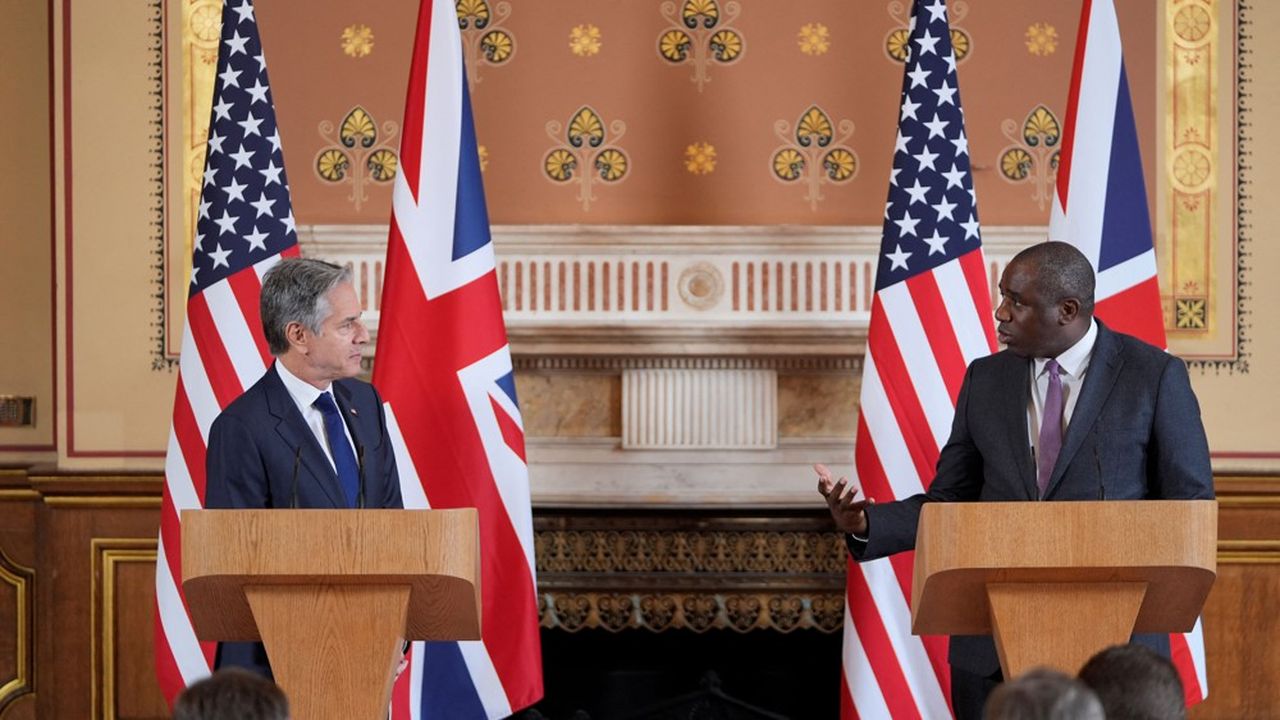
Four days after the revelations of the “Wall Street Journal” on the delivery of Iranian Fath-360 missiles to Moscow, the Western response was swift. In a joint statement, France, the United States, the United Kingdom – which are negotiating together on the Iranian nuclear issue in the E3 group – announced new sanctions against Iran.
At a joint press conference in London with the new British Foreign Secretary, David Lammy, US Secretary of State Antony Blinken confirmed that “Russia has received deliveries of these ballistic missiles and will likely use them in the coming weeks in Ukraine against the Ukrainians.”
For the time being, a diplomatic source said, the use of such devices has not been observed, but the transfer of this equipment has been confirmed by the Ukrainians. Western allies are taking the threat very seriously because more than a hundred of these missiles, with a range of 120 kilometers, were reportedly ordered at the end of 2023. Russian soldiers are said to have trained in Iran on this equipment, the first deliveries of which took place at the beginning of September. “We have warned Iran privately that this measure would constitute a spectacular escalation,” Antony Blinken said.
This also highlights Russia’s need for ballistic missiles, which has been steadily increasing its external supplies. Moscow signed a mutual military assistance treaty with North Korea last June, which has delivered thousands of munitions, heavy weapons, drones, missiles and armored vehicles to it since December 2023.
US Treasury Sanctions
Iran is not far behind, having already exported thousands of drones to Russia, but the West is pressuring the country to stay away from a conflict in Europe. To show their disapproval, they are planning a new series of sanctions that target air transport in particular. London will thus cancel its flights to Tehran while Washington and its allies want to directly sanction Iran Air.
“In addition, we will work to designate individuals and entities involved in Iran’s ballistic missile program and the transfer of ballistic missiles and other weapons to Russia,” the E3 statement said. Six Iranian drone and ballistic missile companies are directly targeted by the U.S. Treasury and State Department, as well as about a dozen of their executives. The U.S. Treasury also has in its sights Russian-flagged ships, designated as “blocked property” under Washington’s sanctions regime.
Antony Blinken also accused Moscow of sharing nuclear technology with Iran. The opacity of the Iranian program, which continues to worsen, led to the adoption of a resolution by the board of governors of the International Atomic Energy Agency (IAEA) in early June, which once again sanctioned Iran.
The 2015 Iran nuclear deal (JCPOA) is due to expire in October 2025 and the resolution was aimed at restoring a balance of power with Iran before the possible resumption of negotiations.





